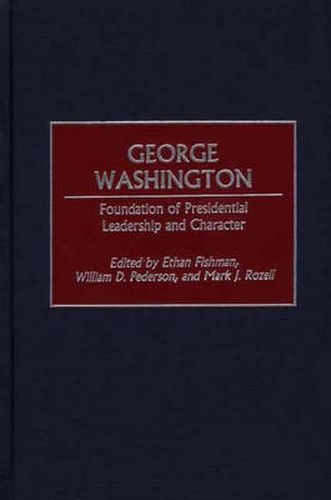Readings Newsletter
Become a Readings Member to make your shopping experience even easier.
Sign in or sign up for free!
You’re not far away from qualifying for FREE standard shipping within Australia
You’ve qualified for FREE standard shipping within Australia
The cart is loading…






Examines the legacy of the Washington presidency. Fishman, Pederson, Rozell, and their contributors offer an examination of the legacy of the Washington presidency. Leading political scientists and historians describe and evaluate the impact of Washington’s leadership on the institution of the presidency and on those who have since occupied the Oval Office. In the contemporary era of almost endless speculation about the role of character in presidential leadership, an analysis of Washington’s character and the model he established is especially germane. The chapters provide diverse interpretations of the value of understanding Washington’s leadership and character of the modern presidency. Some of the scholars conclude that Washington indeed laid the foundation for good character and strong leadership in the presidency. Others take a more critical approach and see in Washington, like many of his successors, a fallible human being who possessed both character strengths and weaknesses. The lasting value of this analysis for political scientists, historians, and other students of the American presidency is that it demonstrates the continued vibrant debate over Washington’s authentic legacy to the office.
$9.00 standard shipping within Australia
FREE standard shipping within Australia for orders over $100.00
Express & International shipping calculated at checkout
Examines the legacy of the Washington presidency. Fishman, Pederson, Rozell, and their contributors offer an examination of the legacy of the Washington presidency. Leading political scientists and historians describe and evaluate the impact of Washington’s leadership on the institution of the presidency and on those who have since occupied the Oval Office. In the contemporary era of almost endless speculation about the role of character in presidential leadership, an analysis of Washington’s character and the model he established is especially germane. The chapters provide diverse interpretations of the value of understanding Washington’s leadership and character of the modern presidency. Some of the scholars conclude that Washington indeed laid the foundation for good character and strong leadership in the presidency. Others take a more critical approach and see in Washington, like many of his successors, a fallible human being who possessed both character strengths and weaknesses. The lasting value of this analysis for political scientists, historians, and other students of the American presidency is that it demonstrates the continued vibrant debate over Washington’s authentic legacy to the office.